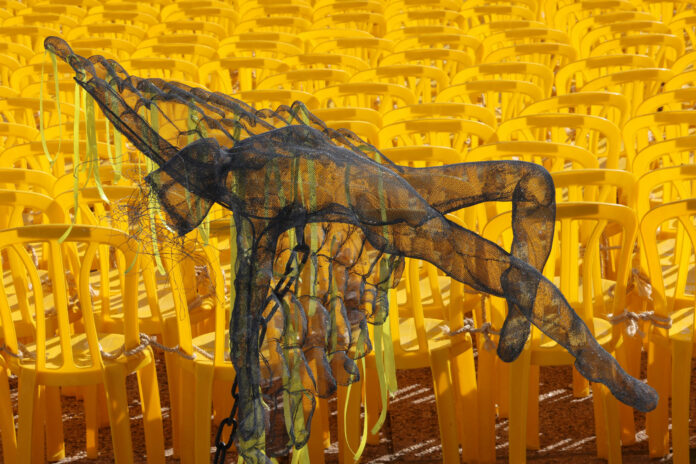On Oct. 7, Hamas terrorists invaded Israel, raped, gang raped, murdered, and mutilated women and girls in front of their friends and parents, shot them in cold blood, and then set their bodies ablaze. Women and girls were also abducted to the Gaza Strip with videos capturing their continued sexual abuse as they were paraded through the streets, bleeding and broken. These atrocities were filmed by the terrorists on body cameras and then broadcast across the world on social media channels and apps, moments after being perpetrated.
Whatever you think of the Palestinian cause, rape is not a form of resistance. Rape is a war crime.
Yet, in the days and weeks following Oct. 7, the decision of international women’s rights organizations to acknowledge and condemn the acts of sexual violence committed by Hamas, or not, revealed an astonishing and upsetting chasm amongst the ranks of those allegedly championing the cause of global gender equality. The most prominent example of silence was given to us by UN Women, which failed to make a direct statement condemning the rape committed by Hamas terrorists, or to explicitly name Israeli women as victims of sexual violence in this war.
JACK GUEZ/AFP via Getty Images
One cannot protect a victim of rape after the fact, but to set this precedent of silence and, thus, denial in a time where information is more widely accessible than any other time in human history, signaled to future violent actors the permission to use rape as a weapon of war. As long as the perpetrators can leverage the messaging and secure influential allies, such as UN Women, in doing so, rape can occur with impunity against some women (and men).
Until Oct. 7, we lived under an illusion that, as there is a Universal Declaration of Human Rights that we strive to hold ourselves accountable to, which applies to all humans without discrimination, so too are the rights and protections of women universal, without regard for race, creed, religion, or nationality. We now know there are some women who are not afforded this dignity.
In reviewing the robust body of international law that sets the framework for how we, as a global society, agree to work together toward women’s rights being fully realized, there is a consistent antagonist present in the conventions and resolutions, inequality with men. Today we are witnessing a turning point in the struggle for gender equality, the rise of a new opponent to women’s full and equal rights, and that is women themselves. Where do we go from here?
During the 16 Days of Activism Against Gender-Based Violence, those of us who claim to be committed to the vision of a more peaceful world through fully realized women’s rights must reflect and decide how to move forward.
Heidi Basch-Harod is the Executive Director of Women’s Voices Now, a non-profit organization that uses film to drive social change that advances girls’ and women’s rights globally.
The views expressed in this article are the writer’s own.
Uncommon Knowledge
Newsweek is committed to challenging conventional wisdom and finding connections in the search for common ground.
Newsweek is committed to challenging conventional wisdom and finding connections in the search for common ground.


